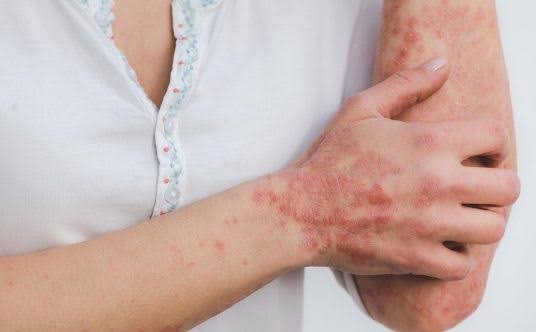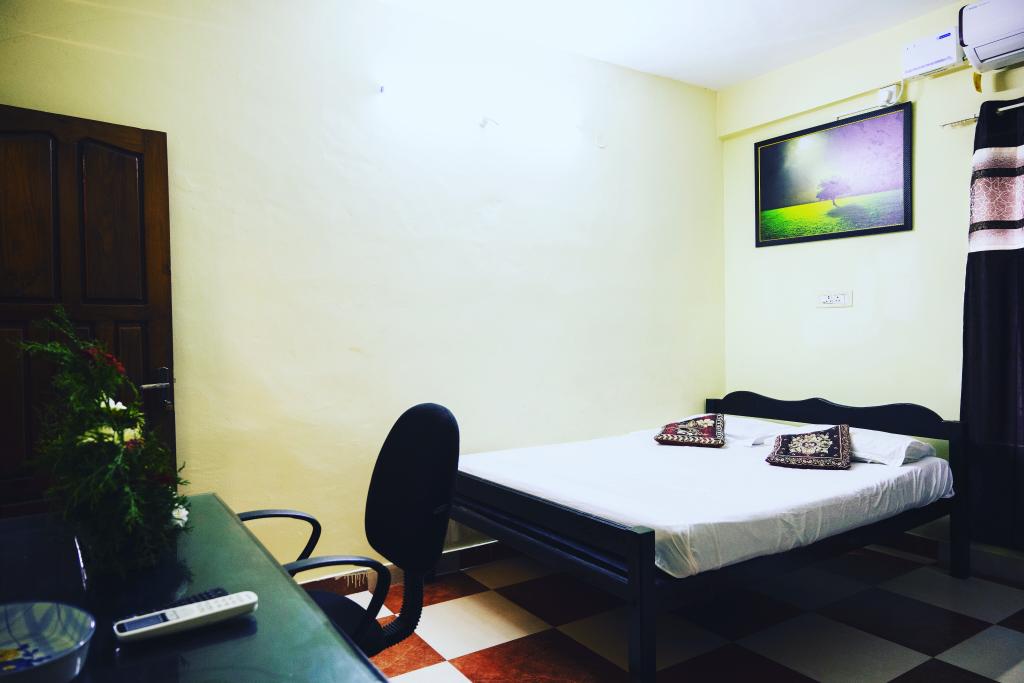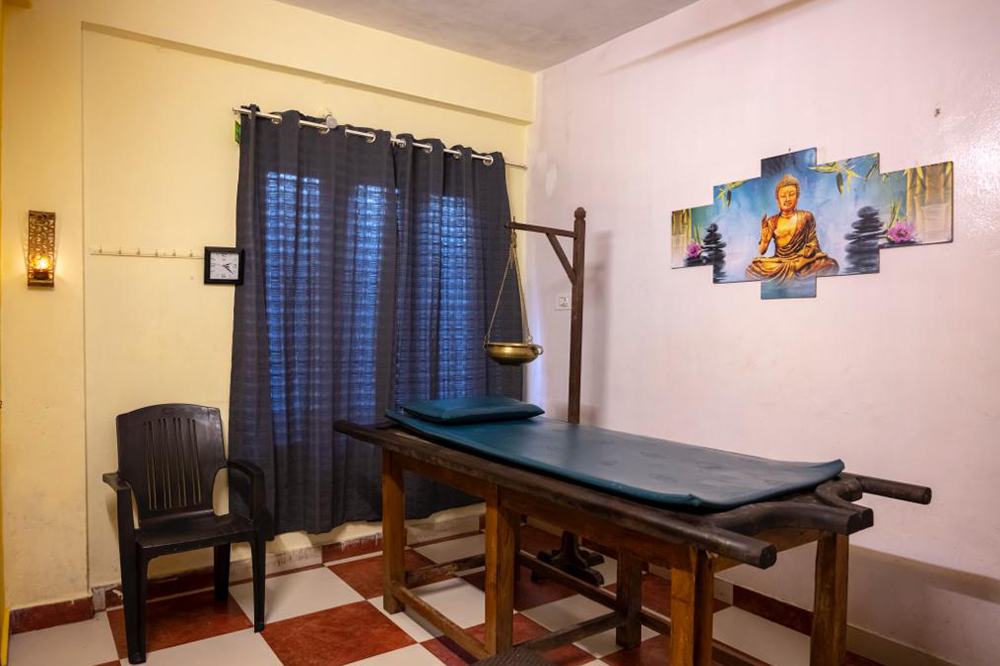In the world of traditional healing and holistic wellness, Ayurveda stands as a beacon of wisdom that has guided humanity for over 5,000 years. Rooted in the ancient Indian subcontinent, Ayurveda offers profound insights and remedies for a myriad of health conditions. Among these, Psoriasis, known as "Kitibha" in Ayurveda, is a prevalent skin disorder that has garnered significant attention in recent times. It is an autoimmune ailment characterised by the development of itchy, sore patches of thick, red, and dry skin. Psoriasis is classified as a chronic inflammatory skin disorder, and its hallmark symptom is persistent itchiness. Here we will explore the different aspects of Psoriasis Ayurveda Treatment.
The Ayurvedic Perspective on Psoriasis
To understand how Ayurveda approaches the treatment of psoriasis, it's essential to delve into the core principles of this ancient system of natural healing. Ayurveda, often referred to as the "Science of Life," places a profound emphasis on achieving and maintaining balance in all aspects of life – physical, mental, and spiritual.
Ayurveda recognises the presence of three primary energies or doshas within each individual – Vata, Pitta, and Kapha. These doshas govern various physiological and psychological functions and are instrumental in determining an individual's overall constitution or "prakriti." Understanding one's unique constitution and the influence of these doshas is crucial in Ayurveda, as it guides personalised treatment approaches.
The Role of Diet in Psoriasis and Ayurveda
Ayurveda firmly believes that diet plays a pivotal role in the development and management of various health conditions, including psoriasis. The ancient wisdom of Psoriasis Ayurveda treatment identifies the consumption of incompatible foods, referred to as "virudhahara," as a significant contributor to skin disorders. Such dietary indiscretions disturb the balance of the three doshas and can lead to the manifestation of skin conditions like psoriasis.
Acharya Charaka, a revered figure in Ayurvedic literature, provides detailed descriptions of various skin disorders, including psoriasis, within the "Kushta" (skin diseases) chapter. This ancient knowledge serves as the foundation for Ayurvedic approaches to understanding and treating psoriasis.
Ayurvedic Treatment for Psoriasis
Ayurveda offers a comprehensive and holistic approach to managing psoriasis. The treatment protocol is designed to address the root causes of the condition, rebalance the doshas, and provide relief from the associated symptoms.
1. Blood Purification:
The first step in Ayurvedic treatment for psoriasis involves the purification of the blood. Ayurvedic physicians prescribe specific herbal formulations aimed at reducing elevated toxin levels within the body. This purification process is essential for clearing toxins from the bloodstream, a contributing factor in the development of skin disorders like psoriasis.
2. Detoxification of the Liver:
The liver plays a crucial role in overall health, including skin health. In Ayurveda, various therapies such as "Vamana" (emesis therapy) and "Virechana" (purgation therapy) are employed to detoxify the liver. These therapies help eliminate accumulated toxins and restore the optimal functioning of the liver, ultimately boosting the body's immunity.
3. Medicated Ghee:
A fundamental aspect of Ayurvedic treatment for psoriasis is the consumption of medicated ghee. The choice of medicated ghee is tailored to the individual's dosha constitution and the specific characteristics of their psoriasis. This regimen typically spans 7 to 10 days and contributes significantly to the overall detoxification and healing process.
4. Shodhana and Shamana Chikitsa:
The primary approach to managing psoriasis in Ayurveda involves two main categories of treatment – "shodhana" (purification) and "shamana" (palliative). "Virechana," an example of a "shodhana" therapy, involves purgation to rid the body of excess toxins. Following purification, internal medications and herbal remedies are administered as part of "shamana" chikitsa to provide soothing relief and manage the condition effectively.
Dietary Guidelines for Psoriasis
Ayurveda places great importance on adhering to a strict dietary regimen throughout the entire treatment period for psoriasis. Here are some dietary guidelines for individuals undergoing Ayurvedic treatment for psoriasis:
Vegetarian Diet:
It is highly recommended to follow a strictly vegetarian diet during the treatment period.
Avoid Non-Veg and Alcohol:
Consumption of non-vegetarian foods and alcohol should be strictly avoided, as they can hinder the progress of treatment.
Limit Salt Intake:
Reducing salt intake is advised, as excessive salt consumption can exacerbate psoriasis symptoms.
Say No to Junk Food:
Junk food should be eliminated from the diet, as it can hinder the progress of treatment.
Maintain Mental Calmness:
Stress is a known trigger for psoriasis, and it can worsen symptoms. Therefore, psoriatic patients are encouraged to maintain a state of mental calmness. Stress management techniques such as meditation and yoga can be highly beneficial.
The Holistic Approach to Psoriasis
Ayurveda's approach to managing psoriasis extends beyond the physical symptoms, addressing the well-being of the individual as a whole. By rebalancing the doshas, purifying the blood, and providing personalised herbal treatments, Ayurveda offers a natural and holistic path to healing for those suffering from psoriasis. This ancient science reminds us that true healing is not only about alleviating symptoms but also about restoring harmony to the body, mind, and spirit.
In closing, Ayurveda's holistic approach to treating psoriasis offers hope and relief to individuals seeking a natural and balanced path to healing. As one embarks on this journey, it is essential to seek guidance from experienced Ayurvedic practitioners who can tailor treatment plans to individual needs. By embracing Ayurveda's timeless wisdom, individuals with psoriasis can find not only relief from their symptoms but also a path to lasting well-being and vitality.
FAQ
1.Who can get psoriasis? Is there any age or sex descrimination?
Psoriasis affects people of all age group. However, the adult people is most affected. People with a family history of psoriasis are at high risk. Male and female group are equally suffered.
2.Is psoriasis, a contagious disease?
No, Psoriasis is not a contagious disease.
3.which part of the body are affected?
Psoriasis commonly appears on the scalp, elbows, knees and torso. Psoriasis can develop anywhere including nails, palms, soles, genitals and face (very rare). Lesions often appear in a symmetrical fashion and in the same place on the right and left side of the body.
4.How is psoriasis diagnosed?
There aren't any special blood test or diagnostic tools to diagnose psoriasis. Only based on symptoms it is diagnosed. Skin biopsy may be useful for definite diagnosis.


























